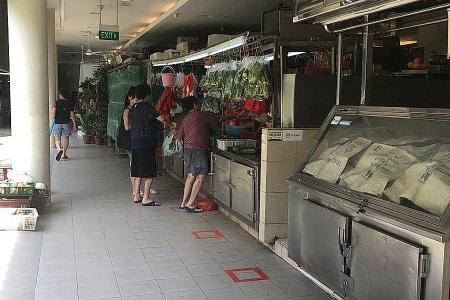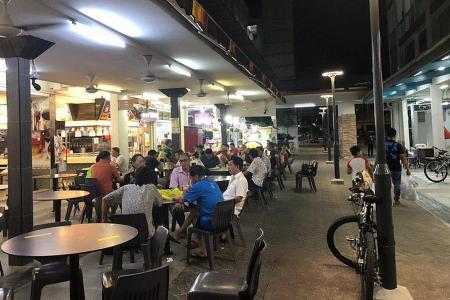New restrictions will push people in the right direction: Experts
They believe new 'circuit breaker' restrictions will help public understand gravity of Covid-19 situation here
People may find it hard to change their social behaviour and practise safe distancing to avoid helping spread Covid-19, but experts say the new stricter restrictions that will kick in tomorrow will give them a push in the right direction.
As announced by Prime Minister Lee Hsien Loong and his multi-ministerial task force on Friday, Singapore will ramp up its fight by applying what the Government calls a "circuit breaker" to stem the growing spread of the coronavirus.
All schools and most workplaces will be closed, and only businesses in key economic sectors and essential services will remain open.
Social interactions too will be limited. Among other things, people will no longer be allowed to dine in and will have to take away their food.
These restrictions are expected to last till May 4 and may be extended if needed.
On a day when Singapore reported 120 new cases of Covid-19 - the biggest daily increase since the outbreak began here in January - bringing the national total to 1,309, Minister for National Development Lawrence Wong, who co-chairs the Covid-19 task force, urged people to abide by the rules and make individual sacrifices and adjust their routines.
Speaking at a press conference yesterday, he said: "Making these adjustments will be difficult, we understand that it is not easy, many Singaporeans have set routines and habits.
"The elderly like to hang out in the hawker centres and coffee shops with their friends, the young people like to go out with their buddies and their friends in malls, but all of these cannot be tolerated any more."
While acknowledging that changing social behaviour is challenging, experts such as sociology professor and dean of students at the Singapore Management University Paulin Tay Straughan believes that the lives disrupted by the new restrictions will send a clear signal on the gravity of the situation.
DISCONNECT
Professor Straughan said: "In the next two weeks, when things dramatically change... people will realise that it is a problem we face in every neighbourhood, and that we are in the middle of a global crisis.
"We watch the news and we see how Covid-19 is unfolding, but there is a disconnect because when we go out, people are still behaving the same way - going out, gathering together.
"The disconnect makes it hard to be cautious at every moment."
Wet markets were flagged as a cause for concern due to their popularity with the elderly and the difficulty in practising social distancing during the morning rush.
The National Environment Agency has begun drawing markings on the floor of 83 wet markets to remind people to keep a safe distance from one another when making purchases.
Madam Noraini Wan Josoh, 53, a canteen stall vendor who goes to Geylang Serai wet market, said she finds it hard to follow the markings.
She said: "A market is a market, anybody can come along. Sometimes, (people) don't follow the rules. It is congested, it is hard to pass through."
Ms Shannen Ang, centre manager of Sage Counselling Centre, said those in their 60s and 70s often find comfort in having a fixed routine, and may find it hard to adapt when it is disrupted.
"But now with more family members working from home, the elderly may have more incentive to stay in as they want to spend time with their loved ones," she added.
Experts also said that fear of isolation, especially in an uncertain time like this, makes it harder for people to keep a distance from one another.
Associate Professor of psychology at Nanyang Technological University Andy Ho said: "When individuals are prevented from engaging in (social interactions), their sense of self and identity are being threatened, leading to their desire to bend the rules so as to feel like themselves again."
However, infectious diseases experts urged that full compliance is crucial for Singapore to reverse the epidemic trajectory.
Dr Alex Cook, vice-dean of research at the Saw Swee Hock School of Public Health (SSHSPH), said: "Some people might think the measures are extreme, but if you look at countries like Italy, Spain, Britain, or the United States, they are now suffering the consequences of waiting too long to start their lockdowns."
Dr Jeremy Lim, associate professor at SSHSPH, said it could take about two weeks for the cases to take on a certain trend.
Infectious diseases expert Leong Nam Hoe added that it is possible that Singapore can see fewer than 10 unlinked cases a day if things go smoothly. In the past nine days, the number of unlinked cases range from 10 to 66.
He said: "A compliance rate of 90 per cent is not enough, we need 99.99 per cent.
"This may well be one of the last circuit breakers we can put in place to stem the tide of the infection. If not, we have to be prepared for tighter lockdown measures." -ADDITIONAL REPORTING: NUR IFFAH BINTI MUHAMMAD
Get The New Paper on your phone with the free TNP app. Download from the Apple App Store or Google Play Store now




